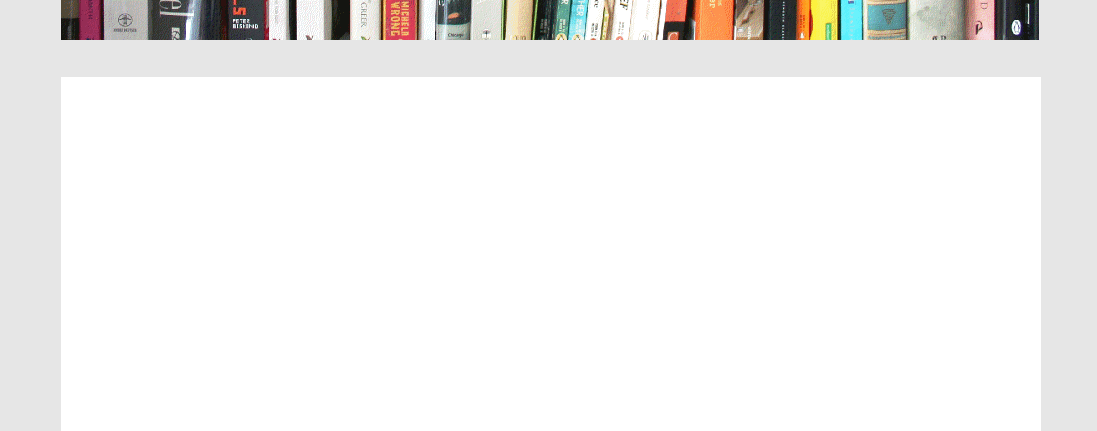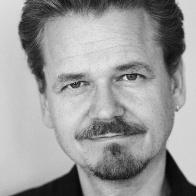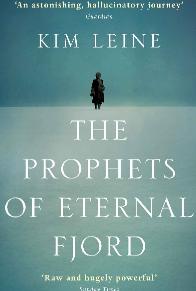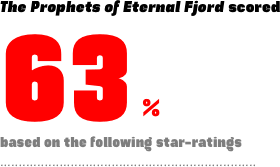 |
||||||||||||
 |
 |
|||||||||||
 |
 |
 |
 |
 |
 |
 |
||||||
 |
||||||||||||
 |
 |
 |
||||||||||
 |
||||||||||||





What was it about?
A historical novel set in the late 18th century that follows the life of one Morten Falck, a Christian missionary who is posted to a remote Danish colony in Greenland. Once there he watches his idealistic notions crumble as the daily hardships take their toll. Meanwhile he must also navigate the complicated social dynamics between the colonists and inuit on the isolated coast. Falck becomes hopelessly entangled in the consequences of his actions and washes up in a settlement run by a Greenlandic couple who have converted to Christanity, the 'prophets' of the title, who have gone back to a more communal way of living, sharing their resources. The prophets wished to live as free Greenlanders and not be subject to Danish rule. Unsurprisingly this ends badly and with his last remaining teeth dangling from his gums, Falck heads home to Denmark a changed man.
What did we think of it?
The strongest point was made by Sally who felt the treatment of the female characters in this book was sadistic and sexist. In particular she found the character of Madame Kragsadt troubling, and the author's highly specific and detailed account of her experiences impossible to read. Others also had to look away and all found there were scenes in this book that made for difficult reading. We debated whether the author was sadistic or whether he was saying the world was sadistic and cruel – innocence is continually destroyed in this novel, what point was the author trying to make?
The character of Morten Falck seemed promising at the beginning, a man of ideas who seems to be going somewhere, but for Andy by the time Falck got to Greenland the book had lost all its energy and focus. Falck was an empty character, unable to hold his interest. For Kate Falck was a blank space into which the reader was invited to project themselves – what might we have done in Falck's place. Things had a tendency not to work out the way Falck hoped they would, but he did try to do the right thing when the occasion demands.
We admired the structure and scope of this ambitious novel, but it was generally agreed that the concluding sequences on the whaling ship and the great fire of Copenhagen were superflous and seemed like an exercise in research rather than furthering the plot. In general we felt the quality of the writing was high (and much credit to Martin Aitkin for what seemed to us an excellent translation) and that Leine has a quite unique way of evoking the sensory experience of a place – something that some of us enjoyed while others very much did not.
Would we recommend it?
A book that delights in taking unexpected turns, this is a detailed and evocative historical novel. Leine delights in wrongfooting his reader's expectations and the book takes many unexpected turns. It is also full of mordant humour. But definitely not one for the fainthearted as it is visceral, gutsy and raw with characters that it is probably fair to say we found quite hard to like.
![]()
![]()
I can see the problematic aspects of it. It's so vivid, so visceral, but I am gripped by the individual stories even as I have to read bits of it from between my fingers. There is a real truthfulness to the characters here that I find compelling. Weirdly despite the fact that everything that happens to Falck is so awful, this has actually made me want to travel to Greenland.
![]()
![]()
There was a lot about this that I didn't enjoy, but I did read the whole thing and I did appreciate the overall narrative arc. But I found it unremittingly grim and the portray of women, in particular the constant sexual abuse, made me feel very uncomfortable. And the central character for me seemed flat and one-dimensional. I never really believed in him, and he had no inner life. A
mixed bag.
![]()
![]()
It wasn't the book I thought it was going to be at the begining. It set out to be provocative about the Enlightenment and Copenhagen, but then devolved into a tale about an empty character with lots of stories that I felt could have been edited out. I found it episodic with a weak narrative thread running through it – a missed opportunity to write the definitive novel about Greenland.
![]()
![]()
Despite the fact that it was an incredibly challenging read on lots of levels I loved this. I felt invigorated by it. I was thrilled at the author's capacity to evoke a place through sensation and while I wondered at some of the turns the characters took I always enjoyed the sense of the author's guiding hand. I also thought the themes of morality that run through the book were fascinating and well handled. It is a caustic and damning indictment of the wrongs perpetrated by the early Danish settlers in Greenland and the novel asks searching questions of things that were done in the name of Christianity. I found it fascinating.

Translated by Martin Aitken
June 2017 saw us at Kate's house where we consumed a sumptuous meal and were heartily thankful we didn't have to eat our own shoes like some of Leine's characters.
Also discussed: Greece and the Mani Peninsula • Patrick Leigh Fermor • Lawrence Durrell • Borgen • Marijuana area of Copenhagen • Whether or not Greenland is a beautiful place • The Forever War • The North Water by Ian McGuire • The Ends of the Earth Trilogy by William Golding